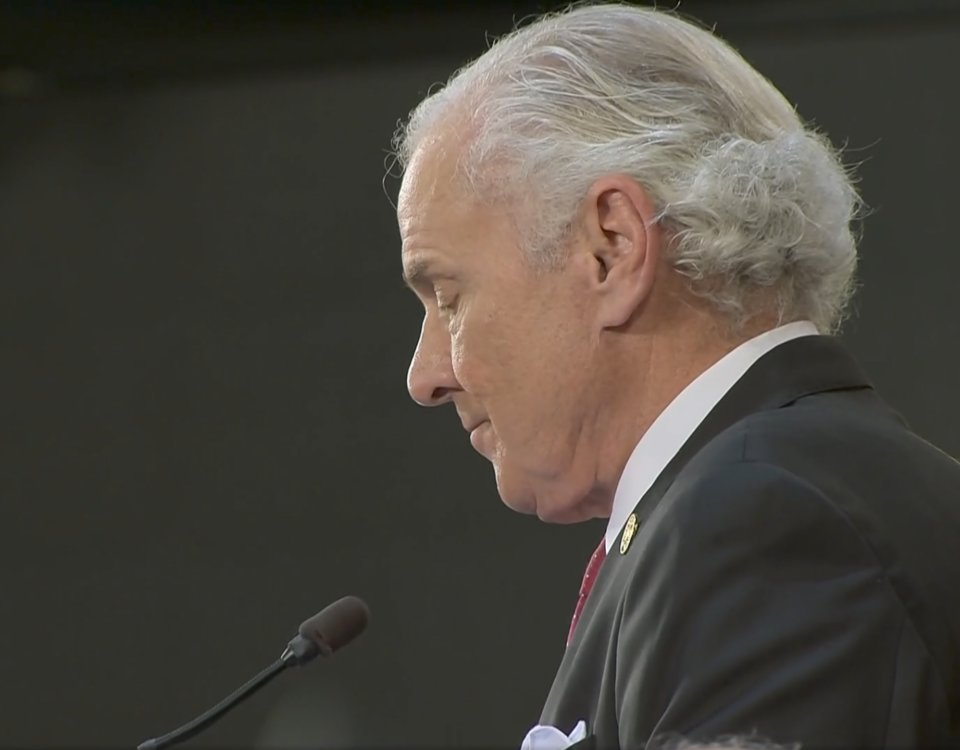
Fair Share Bill
April 22, 2019
5 Facts About Fixing Our Roads
July 11, 2019A New Workers’ Compensation Bill Could Turn Your Business On Its Head

This op-ed was first published in the Greenville Business Magazine.
The Palmetto State is largely known as a business-friendly state in most categories. Each year, business groups promote a legislative agenda that pushes critical needs for our business community. In 2017, it was increased funding for roads. In 2018, we pushed criminal record reform to get non-violent offenders back into the workplace. In 2019, we’re pushing for higher teacher pay.
What is sometimes more important—and something we do not always trumpet—is the strategy of defeating harmful bills. These threats to our business climate come fast and furious during every session of the General Assembly. Take H. 3352, filed earlier this year, as an example.
This is a workers’ compensation bill filed by a legislator who works at a firm that represents workers’ compensation claimants. Her bill would undo 100 years of workers’ compensation law in the state, and drastically alter nearly centuries of common law.
If enacted, this legislation would prohibit an employer from even asking a claimant to sign a waiver agreeing not to pursue tort remedies against the employer in exchange for settling the case. This “clincher” agreement is commonly used when a claimant cannot return to work for some reason. If a business even pursues such a clincher clause, the claimant can re-open the worker’s compensation case, whether the clincher is enacted or not.
But let’s back up for a second. In our country, workers’ compensation laws date back more than 100 years. The basic premise is to protect workers who are injured in workplace accidents. Without these protections, any time an employee was injured he or she bore the burden of proving that the injury was the result of employer negligence or other fault. The employer could raise a host of defenses (e.g. contributory negligence) that made these cases easy to defend.
To protect workers from the rigors of bringing these suits, states passed workers’ compensation laws that gave employees remedies for injuries sustained during the course of employment. Basically, the only issues in a workers’ compensation case are liability (did the injury occur of and in the course of the employment?) and the amount of the recovery. The terms for recovery are established by law and include all medical bills attributable to the injury, temporary total compensation for lost time, and permanent disability benefits if the claimant suffered any permanent injury.
Back to the proposed legislation. It would deem any settlement agreement (the basic building block of the entire workers’ compensation system) “void and unenforceable to the extent that the injured employee or his dependents agree to dismiss…” liabilities “known or unknown, suspected or unsuspected which the injured employee or his dependents have, own, or hold against the employer up to the date of the release including, but not limited to…” numerous federal laws. It even bars settlement of “torts of any kind….”
A bedrock principle of the Common Law of England, as handed down in the United States, is that a release of liability is a contractual obligation. A release constitutes a binding agreement barring further action by the plaintiff in exchange for a set sum of money or some other obligation, and ends the dispute. This bill would allow the plaintiff to get compensated by the defendant (employer) and then turn right around and sue again. Presumably, they could get another “settlement” and sue again and again and again.
A second part of the bill is even more alarming. If the employer even proposes a resignation and release, such actions are deemed to be “bad faith,” making a business subject to punitive damages in a jury trial. As written, the bill disallows any defense since seeking a release is defined as bad faith “per se.”
Currently, there is no concept of “bad faith” in the workers’ compensation law. Once a principle such as this is introduced into law, it will certainly be expanded to any minor paperwork snafu or missed phone call, which could trigger seven-figure punitive damage awards in circuit court.
- Under this bill, why would a business ever settle a workers’ compensation claim? Some of the consequences of this bill to consider:Already overcrowded workers’ compensation commissioner or court dockets would be swamped with contested claims.
- Employers would have to proceed to trial for every claim in order to avoid res judicata (ensuring a cause of action may not be relitigated) on other claims.
- This could put into question other business and state benefits, including unemployment, health insurance, and other similar benefits.
Really, the two things this bill would do is to first ensure workers are not adequately compensated for their injuries and medical bills while the lawsuits carry on (potentially for years) and second, it will ensure second lawsuits that will result in higher legal fees for the injured workers and companies.
This is the type of legislation that your chambers and industry associations fight every year in Columbia. Business leaders such as yourself want to serve customers, expand your businesses, and meet payrolls each week, but a piece of legislation such as this could turn your business on its head.



